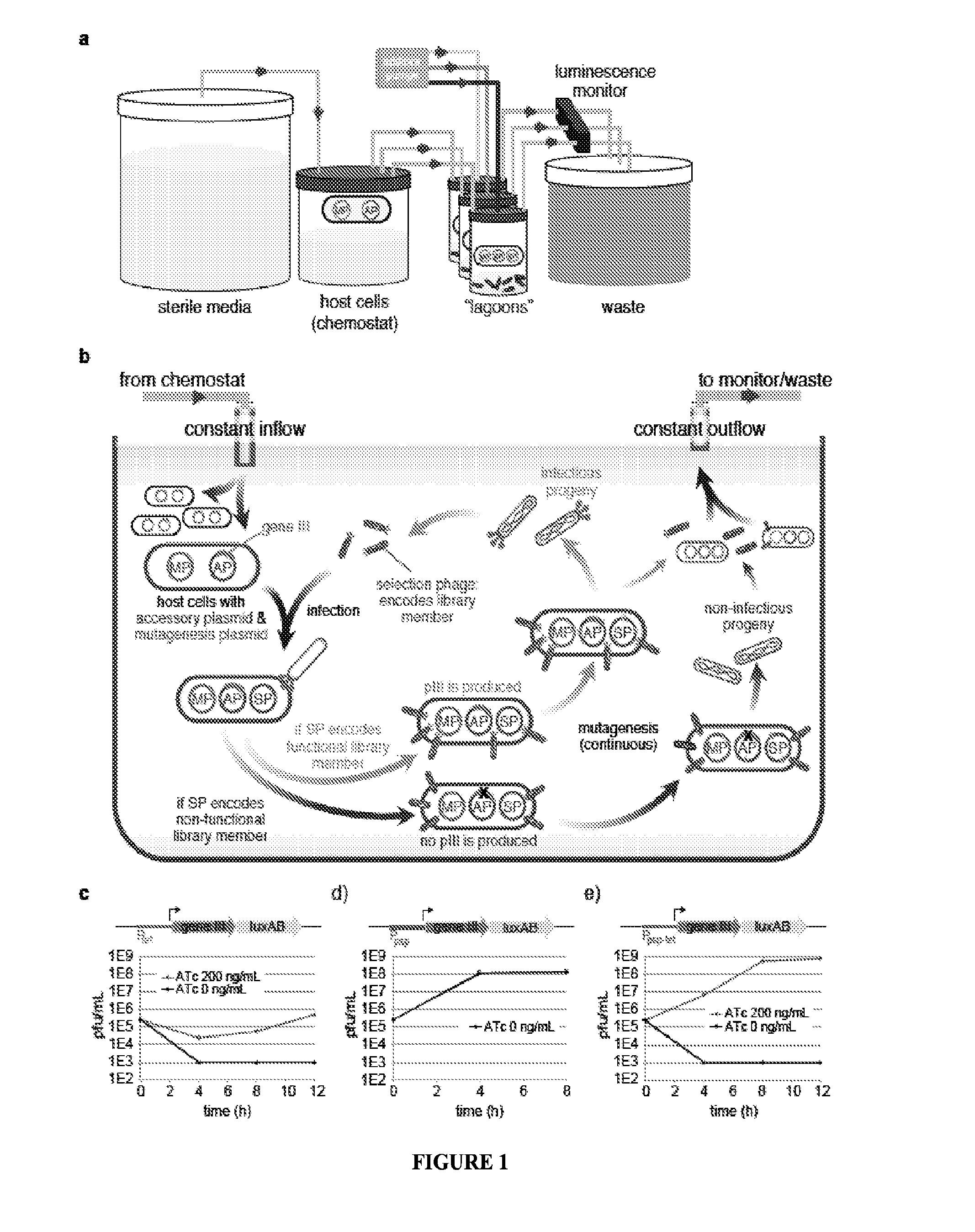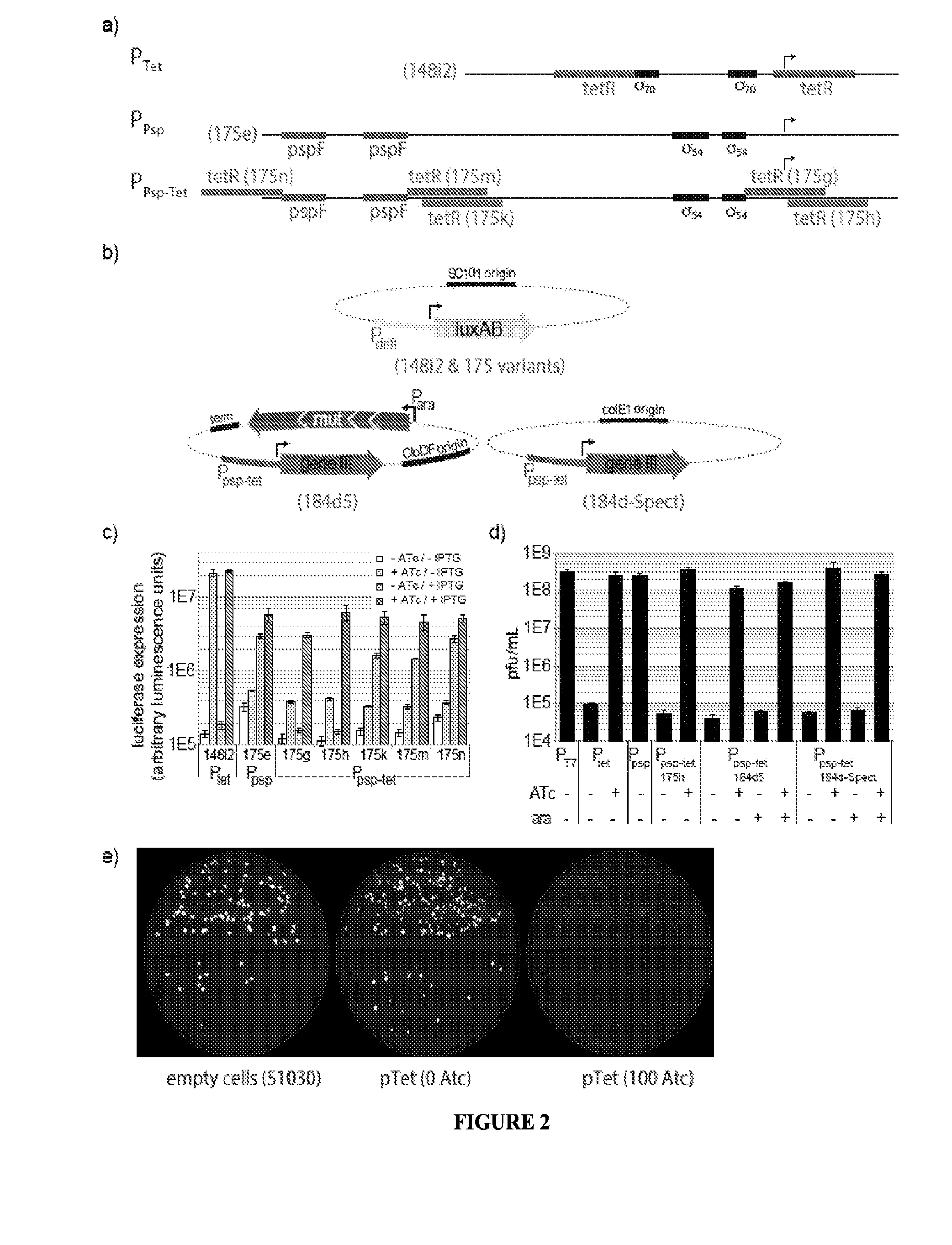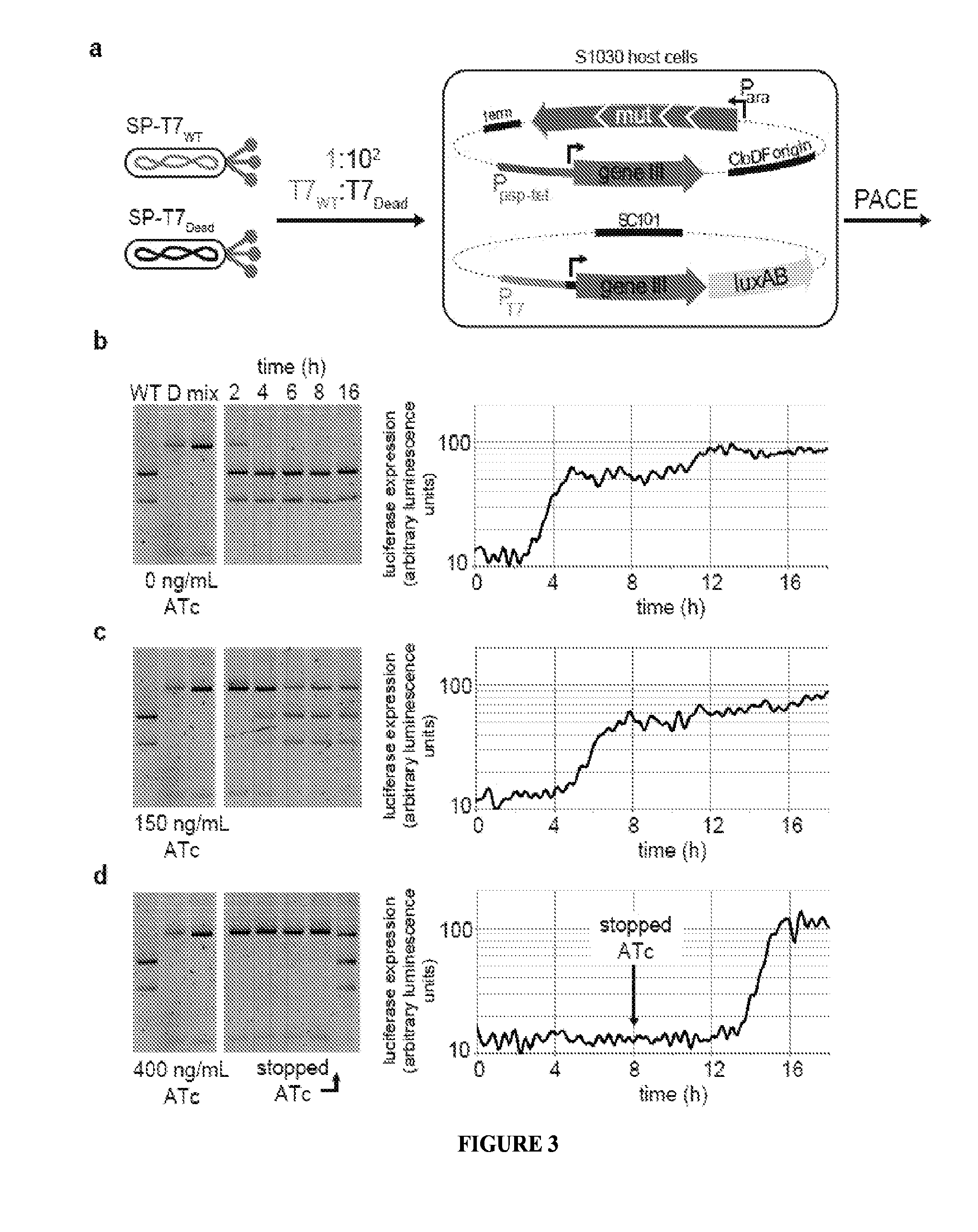Negative selection and stringency modulation in continuous evolution systems
a continuous evolution and negative selection technology, applied in the direction of directed macromolecular evolution, library creation, peptides, etc., can solve the problems of limiting many laboratory evolution efforts to a modest number of rounds, unable to enable continuous directed evolution, and foregoing example of continuous directed evolution cannot be easily adapted to evolve other biomolecules
- Summary
- Abstract
- Description
- Claims
- Application Information
AI Technical Summary
Benefits of technology
Problems solved by technology
Method used
Image
Examples
example 1
Evolution of RNA Polymerase Variants
Methods
[0167]Bacterial Strains.
[0168]All DNA cloning was performed with Mach1 cells (Invitrogen) or NEB Turbo cells (New England Biolabs). All discrete infection assays, plaque assays and PACE experiments were performed with E. coli S1030. This strain was derived from E. coli S1091 and was modified using the Lambda Red method23 as follows: 1) scarless mutation to rpoZ to introduce a frameshift mutation to enable n-hybrid schemes;24 2) integration of lac′ and tetR overexpression cassettes onto the F plasmid to enable small-molecule regulated transcription of various genes; 3) integration of luxCDE onto the F plasmid for the production of decanal to facilitate luciferase monitoring experiments;25 4) deletion of flu, pgaC, and csgABCDEFG to dramatically reduce biofilm formation in chemostat PACE experiments;26-28 and 5) mutation of the chromosomal, low-affinity high-capacity AraE promoter to a constitutive promoter for titratable arabinose induction ...
example 2
Development of a PACE System for DNA-Binding Activity
[0230]Engineered proteins containing programmable DNA-binding domains (DBDs) can be used for targeted modification of nucleic acid molecules in vitro and in vivo and have the potential to become human therapeutics. The specificity of a DNA-binding domain is crucial to the efficacy and safety of the resulting DNA-binding proteins, such as nucleases or DNA-editing proteins. This disclosure illustrates a general approach for the continuous directed evolution of DNA-binding activity and specificity.
[0231]A general system for the continuous evolution of DNA-binding domains is presented. The system was validated by evolving restored DNA-binding activity in zinc fingers. The data presented here establish a new strategy for tuning the affinity and specificity of DBDs.
Results
[0232]To develop a PACE-compatible DNA-binding selection, a DNA-binding domain of interest was linked to a subunit of bacterial RNA polymerase III (RNAP). Binding of t...
PUM
 Login to View More
Login to View More Abstract
Description
Claims
Application Information
 Login to View More
Login to View More - R&D
- Intellectual Property
- Life Sciences
- Materials
- Tech Scout
- Unparalleled Data Quality
- Higher Quality Content
- 60% Fewer Hallucinations
Browse by: Latest US Patents, China's latest patents, Technical Efficacy Thesaurus, Application Domain, Technology Topic, Popular Technical Reports.
© 2025 PatSnap. All rights reserved.Legal|Privacy policy|Modern Slavery Act Transparency Statement|Sitemap|About US| Contact US: help@patsnap.com



